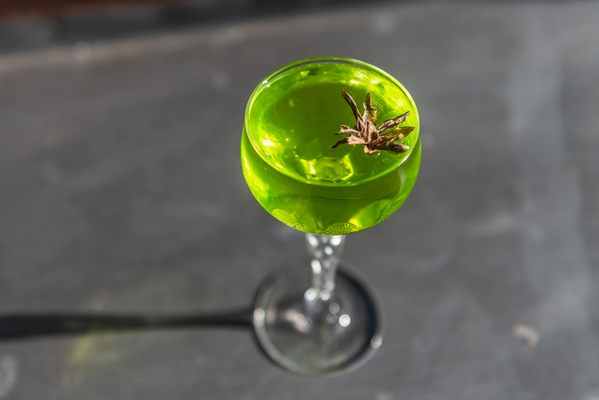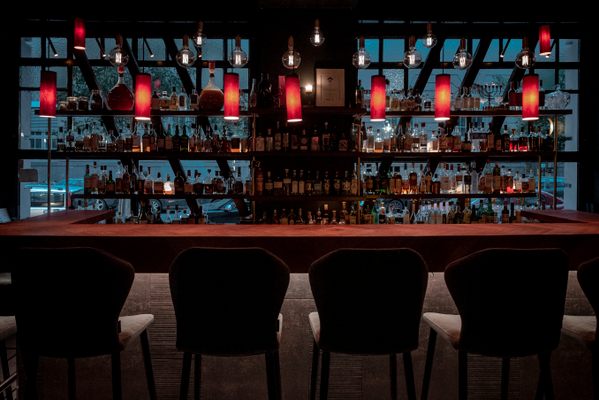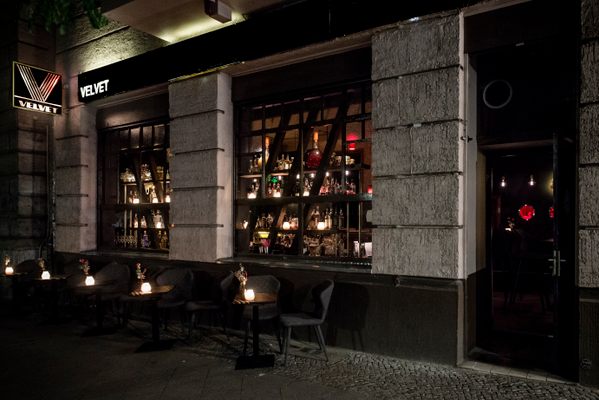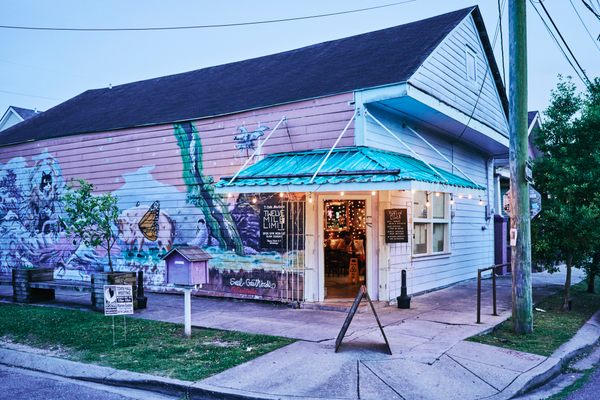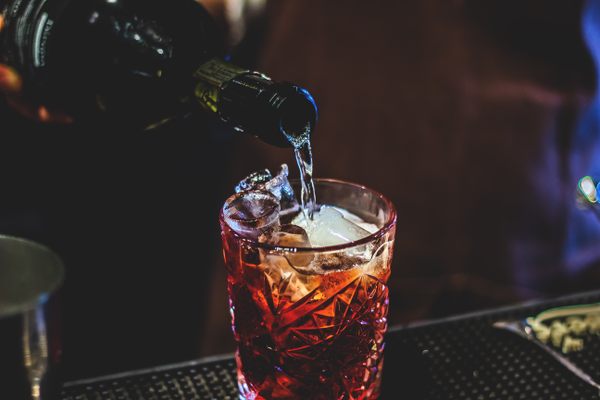About
On any given day, the menu at Velvet, a dimly lit watering hole in Berlin’s Neukölln neighborhood, might contain black locust blossoms, white asparagus, or Japanese knotweed. Each week, Benjamin Hanke, Filip Kaszubski, Ruben Neideck, Matt Boswell, and Sarah Swantje Fischer assemble for a full day of distilling and infusing hyperlocal ingredients into complex libations.
“We love working with ingredients that might seem a little bit strange,” Hanke says. “We tried celtuce last year and sort of fell in love with the idea, just because it tasted so good.” That celtuce comes from a Prinzessinnengarten, a community garden in Kreuzberg less than a kilometer away, while the yarrow blossoms in an herbaceous riff on a martini come from nearby Tempelhofer Feld, the public park that now occupies the landing strip of Berlin’s former airport.
Although the menu also relies on cultivated local produce, wild ingredients play an especially large role. Velvet’s approach to mixology may be unique in Berlin, but it ties into a long German history of foraging. In the 1600s, a German law decreed that in order to marry, gentlemen first needed to plant six oak trees and six fruit trees. Remnants of forgotten fruit orchards still dot the country.
In the German countryside, plenty of homes contain stashes of Kräuterlikor—homemade hooch infused with all manner of foraged wild ingredients. And while the younger generation may not want to do things quite the way Oma did, urban foraging is very much on the rise in Berlin. The key, Hanke points out, is to forage ethically and stay within certain guidelines.
“We pay close attention to a few basic rules,” Hanke says of their expeditions to Tempelhofer Feld and other public spaces. “It’s important to leave at least half of a wild ingredient. You never take everything for yourself. That’s something we take seriously.”
Since seasonality factors heavily into the menu, the sparse winter months can be tricky. Thus far, the team has avoided German wintertime staples such as kale and potatoes. “Cabbage just doesn’t translate well into a cocktail,” Hanke says. Instead, he says they rely heavily on pickles, preserves, and the occasional niche winter ingredient. “One winter, we made cocktails out of an organic Christmas tree that one of our guests donated. It tasted fantastic.”
Related Tags
Know Before You Go
The team comes up with their new menu for the week each Tuesday.
Community Contributors
Added By
Published
July 21, 2022
